5 Ways Designers Use Indoor Plant Arrangements To Make Homes Look More Expensive — "This Always Works"
Designers know how to use indoor plant arrangements and displays to truly elevate a home. Use greenery to give yours a more luxe feel
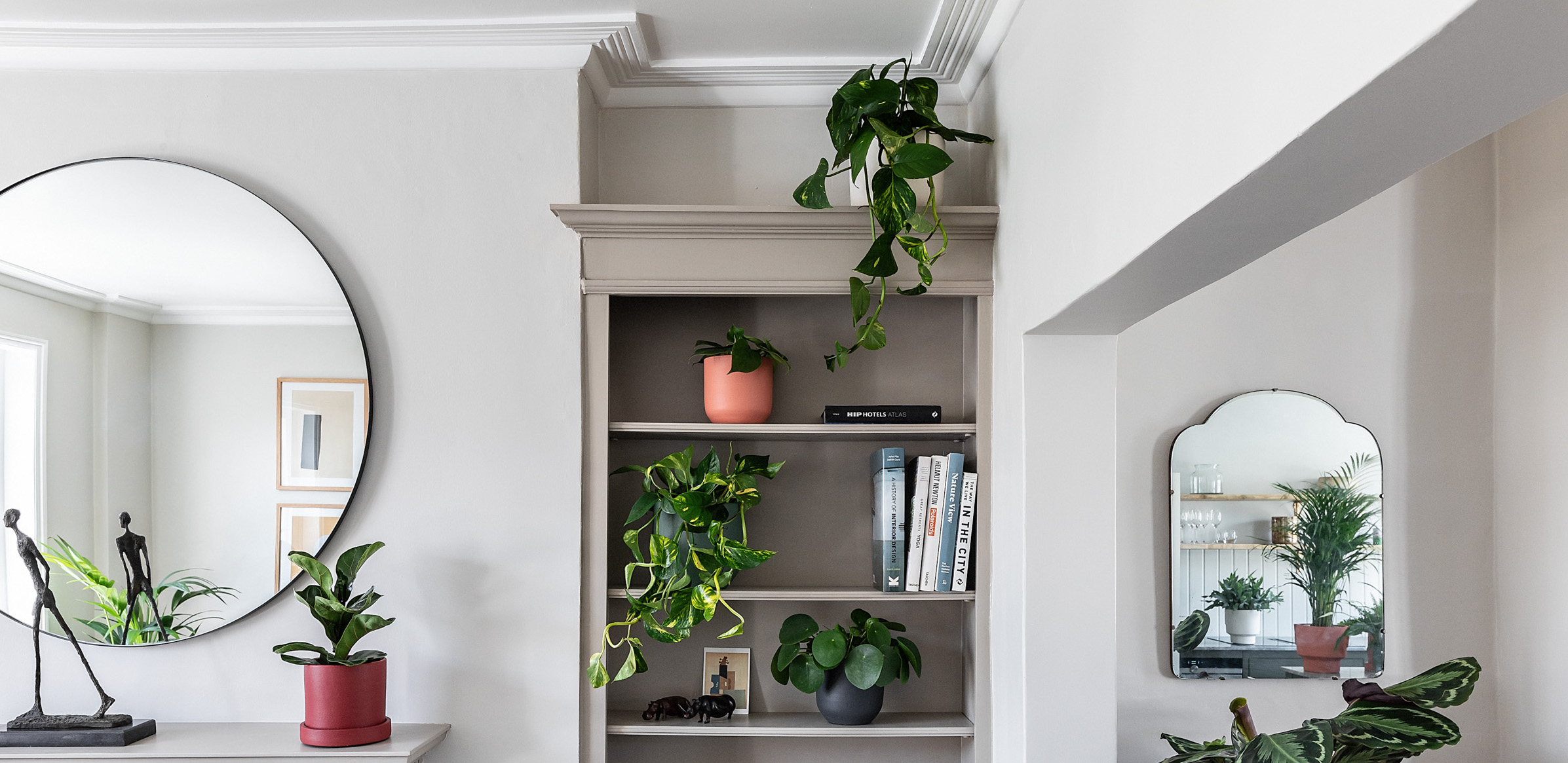
Living foliage is a wonderful addition to a home, however a dusty, solitary plant sat on a shelf won't do much to boost the mood. However, with some simple indoor plant arrangement ideas, it's easy to lift your space. Think maximum impact with minimal effort.
From the type and size of the plant to the color, style and placement of the pots, a little planning and styling will go a long way to creating an elevated indoor garden.
We've gathered tips from stylists and plant experts, so you'll be able to create different displays that will add to the enjoyment of your space. Take your pick from these plant arrangement ideas.
1. Hang planters at staggered heights
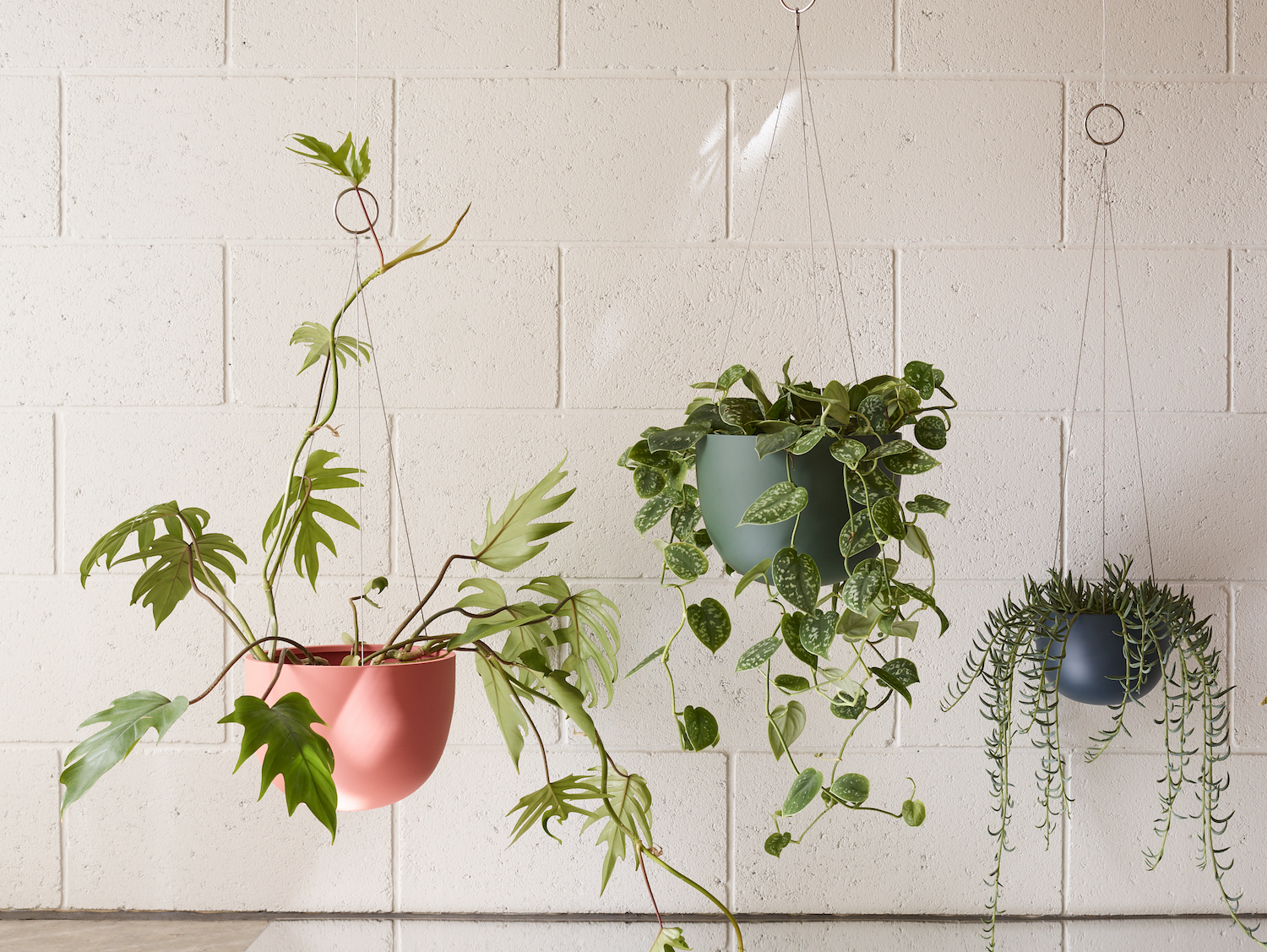
Clifton hanging planters by Aaron Probyn
There's something about trailing plants dangling from on high that enlivens a room. However, this effect is multiplied into a festival of foliage when hanging planters are grouped together at varying heights.
'I love grouping hanging planters with trailing plants together,' says New York and London based stylist, Rebecca McEvoy. 'This arrangement looks great in a bathroom, an open-plan kitchen under a skylight or in a living space by a window.
'A mix of vines and plants with different shapes and coloured leaves works best. An easy-to-care for pothos, a string of hearts, velvet leaf philodendron, mini monstera or asparagus fern makes a good grouping.
'They all grow in different ways and at different rates so look good in any combination together. Odd numbers work best for this and three is a solid amount. Planters in different sizes and colours hung at staggered heights work perfectly for these groupings big or small.'
2. Fill a bare corner with a statement tree
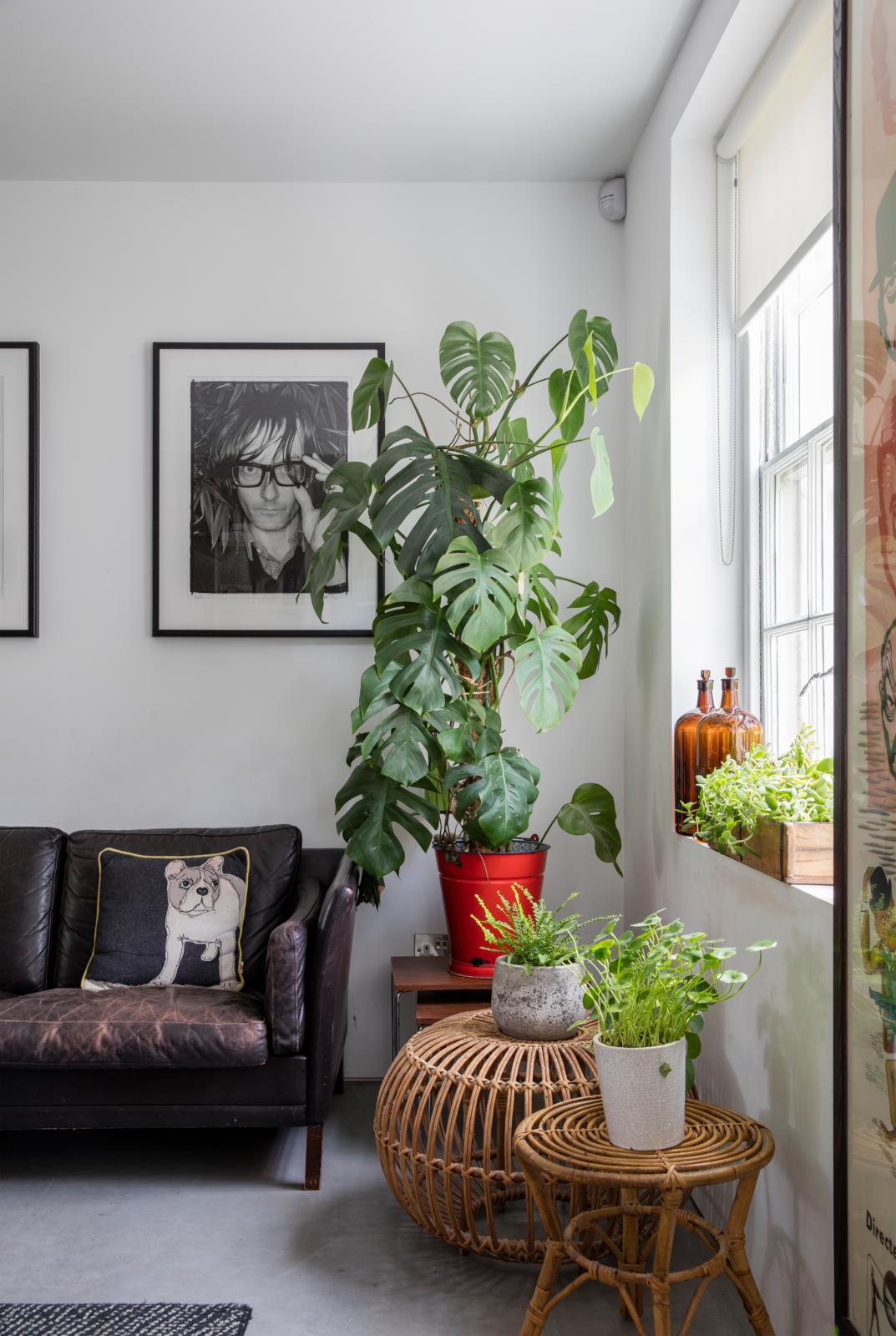
A tall statement plant or indoor tree will bring a bare or forgotten corner to life. Rather than splashing out on an enormous plant to place on the floor, consider placing a smaller plant on a pedestal for a similar look.
'I love the drama of a tall graphic plant or indoor tree in the corner of a room or near a window in a chunky statement plant pot,' adds Rebecca. 'A concrete or brightly glazed ceramic pot adds extra impact.
'Plants to choose would be those with an interesting shape, such as a Yucca [like this one from Amazon, $39.95], a giant rubber tree or tall fiddle leaf fig. If you’re good with plants, try an elephant ear or even a big banana tree - these need more care, so bear that in mind.'
'I have never met a monstera or bird of paradise plant that wasn’t ready for the spotlight,' adds Kamili Bell Hill, author Happy Plants Happy You. 'Place your plant on a console table to utilise an empty space behind the sofa.'
3. Go vertical with floating plant shelves
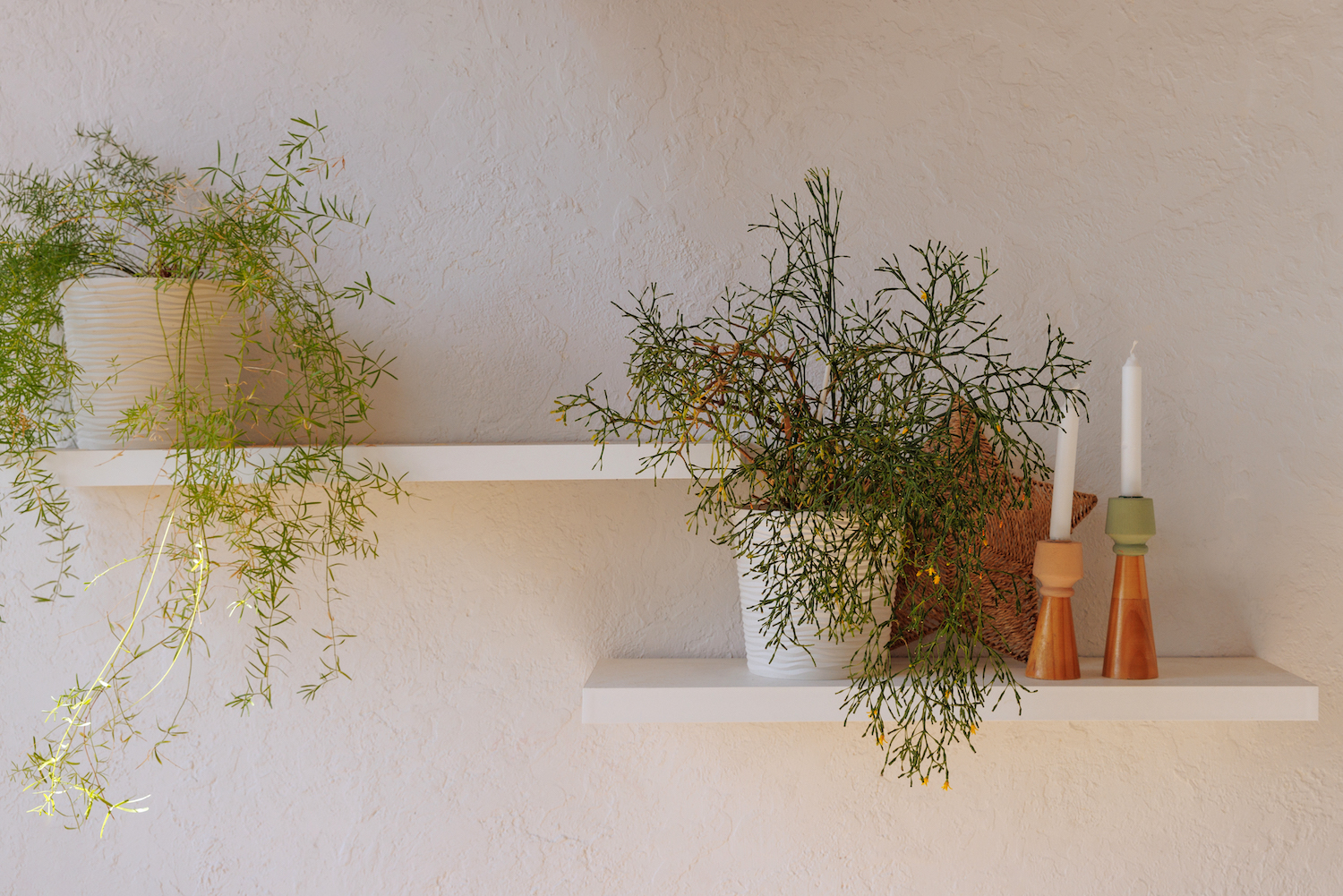
If you're short on surface or floor space, go vertical and fit a floating shelf or two on a bare wall, then fill it with your favorite plants.
'You can create living art for your walls with a floating plant shelf,' says Kamili Bell Hill. 'Install a grouping of shelves with staggered heights or a single shelf for drama. Stage the shelf using a mix of upright and trailing plants or add framed photos and decorative art objects.
'A plant trailing down from the top is pure beauty. If the back of the shelf is closed, don’t forget to rotate your plants to keep their growth even.'
4. Use cuttings as a table centerpiece
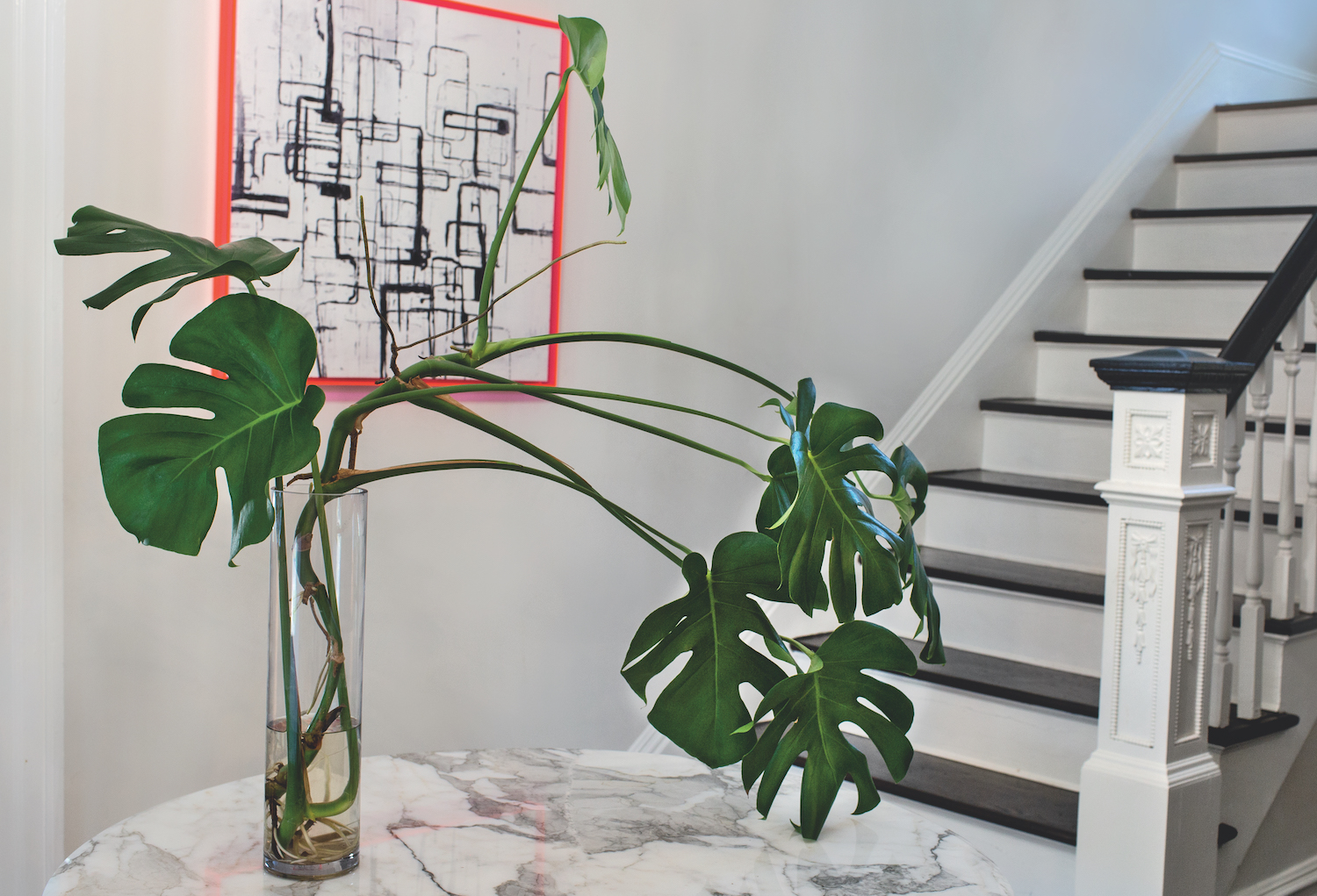
Flowers tend to be the table decoration of choice for most of us, yet plant cuttings make a refreshing alternative. Choose a large cutting like a Monstera for a single statement centerpiece or groups smaller plants that you're propagating together for a diminutive display with a difference.
'This Monstera deliciosa cutting rooting in water makes for a stunning table centerpiece,' says Kamili. 'While the vessel is tall, there is just enough water to cover the nodes and aerial roots. You do not need to fill the container to the top when rooting in water.
'But you do need to top up the water when it evaporates to replenish oxygen for the roots. The cutting will also secrete a small amount of hormones that help it develop roots. The less water there is, the more concentrated the hormones and the faster the rooting process.'
5. Disguise grow lights in your display
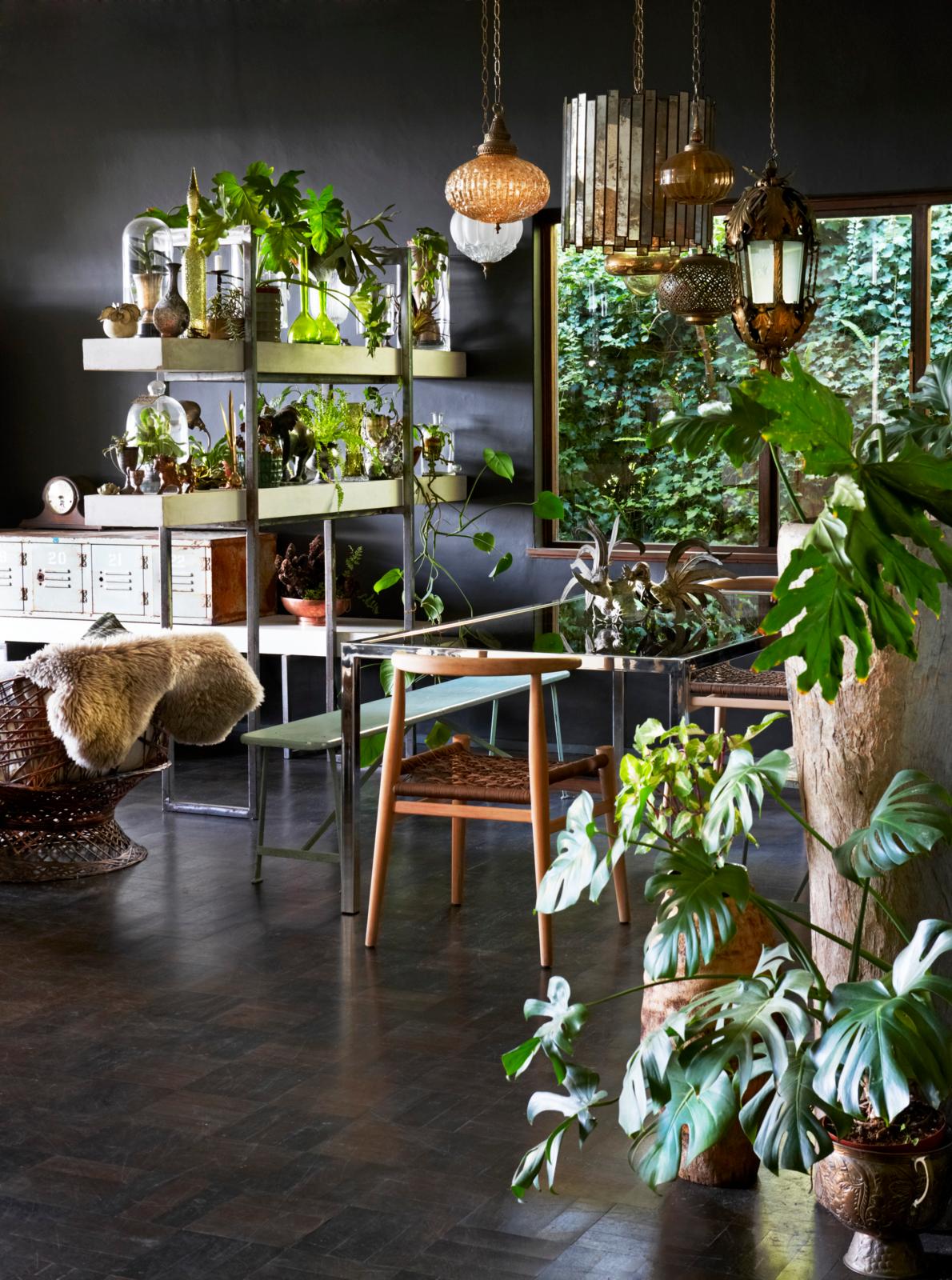
Growing plants in north-facing or otherwise dark rooms can be difficult. Plants need light, and unless they are forest-floor dwellers in their natural habitat, or otherwise low-light varieties, most will suffer without sufficient daylight.
Grow lights may sound like a step too far for plant newbies. Yet it's possible to improvise and weave an attractive lamp or two that you already own into your plant arrangement ideas with the addition of some alternative bulbs.
'Grow lights are every indoor gardener’s friend,' says Kamili. 'I have them in all of the rooms on the first floor. My plants would not survive without this supplemental light.
'Thankfully, grow lights come in every style imaginable because I need them to blend in. You can find them in floor lamps with bendable necks, in sleek hanging lights, and even in track lights. Many of the styles blend into any décor.
'And you don’t have to stop there. I have replaced all the ordinary bulbs in my table lamps in the living room with full-spectrum bulbs that act as grow lights. The full-spectrum bulbs and the grow light bulbs are all LED so they are energy efficient and will not put a strain on your monthly utility bill.
'Don’t let lack of light stop you from adding plants to your home—just add a grow light.'
Be The First To Know
The Livingetc newsletters are your inside source for what’s shaping interiors now - and what’s next. Discover trend forecasts, smart style ideas, and curated shopping inspiration that brings design to life. Subscribe today and stay ahead of the curve.
Jacky Parker is a London-based freelance journalist and content creator, specialising in interiors, travel and food. From buying guides and real home case studies to shopping and news pages, she produces a wide range of features for national magazines and SEO content for websites
A long-time contributor to Livingetc, as a member of the team, she regularly reports on the latest trends, speaking to experts and discovering the latest tips. Jacky has also written for other publications such as Homes and Gardens, Ideal Home, Red, Grand Designs, Sunday Times Style and AD, Country Homes and Interiors and ELLE Decoration.
-
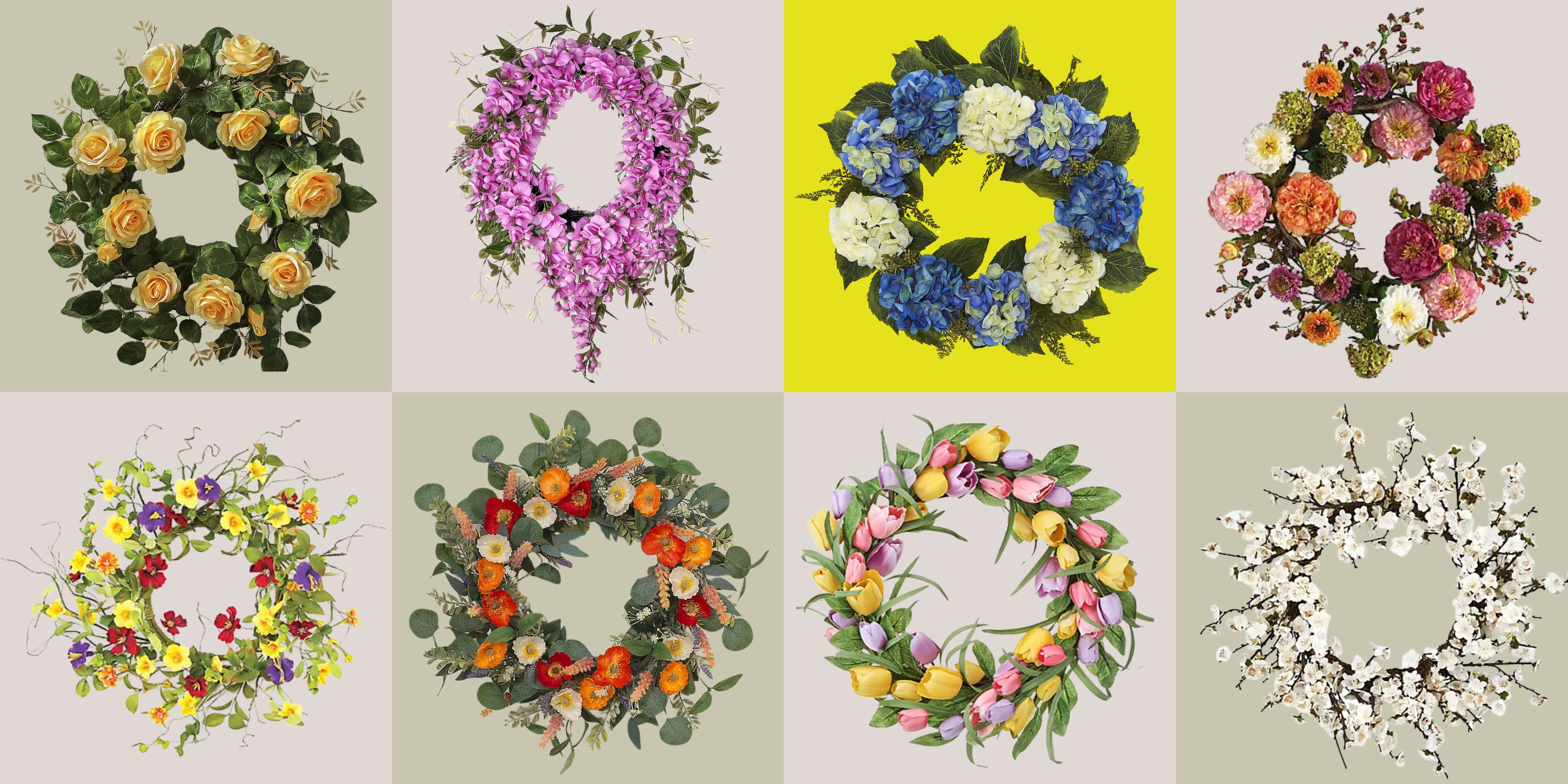 These Are the Flower Crowns I’m Wearing This Spring (Spoiler: They’re Actually for My Door)
These Are the Flower Crowns I’m Wearing This Spring (Spoiler: They’re Actually for My Door)Coachella confirmed the comeback of flower crowns. At home, they just go by another name: the spring wreath
By Julia Demer
-
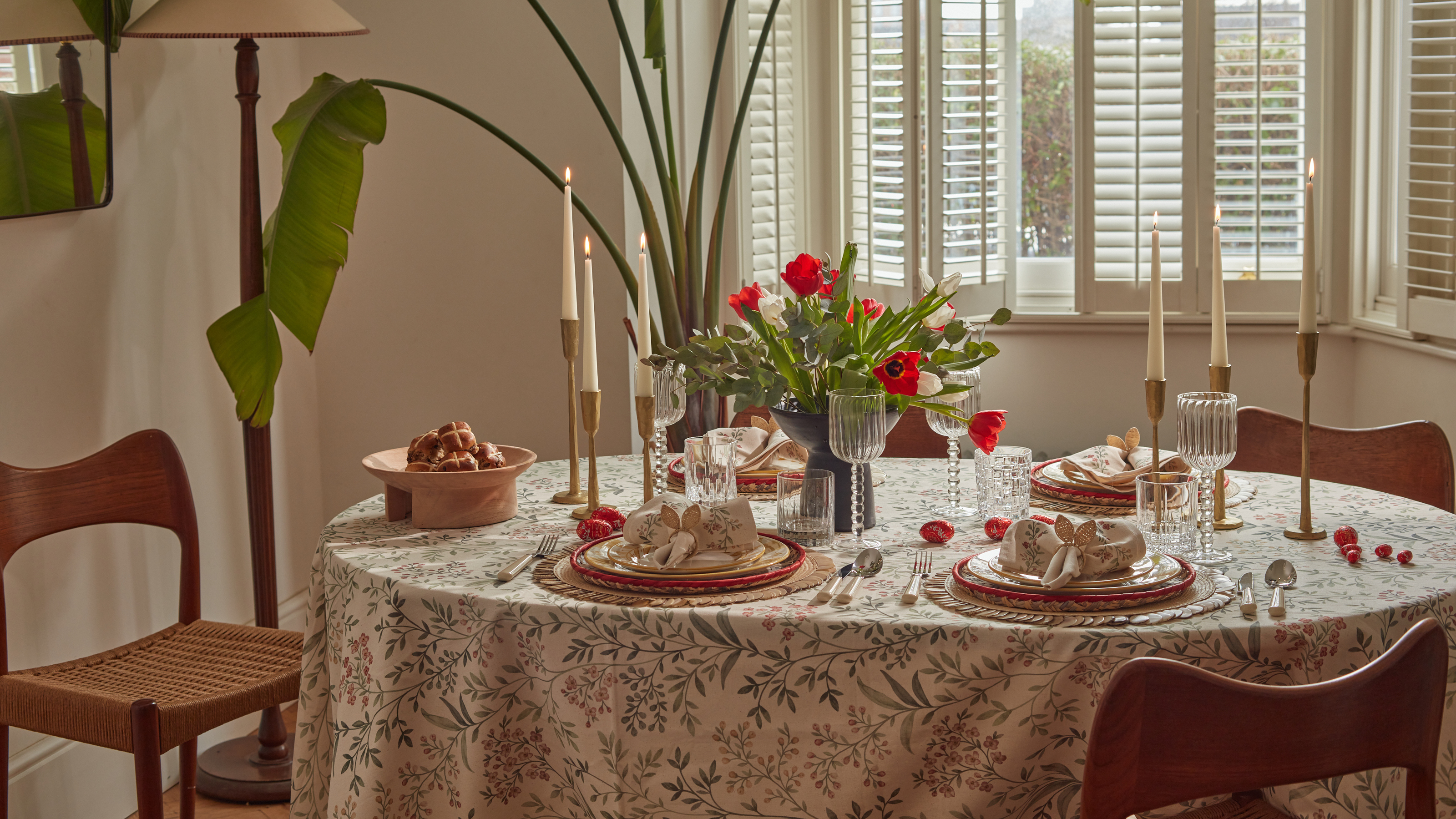 Bunny Ears, Be Gone — 7 Easter Table Styling Mistakes That Will Take Your Setting from Tawdry to Tasteful
Bunny Ears, Be Gone — 7 Easter Table Styling Mistakes That Will Take Your Setting from Tawdry to TastefulFrom fussy floral displays that disrupt conversation to over-relying on tacky tropes, don't fall victim to these errors when decorating your Easter table
By Lilith Hudson